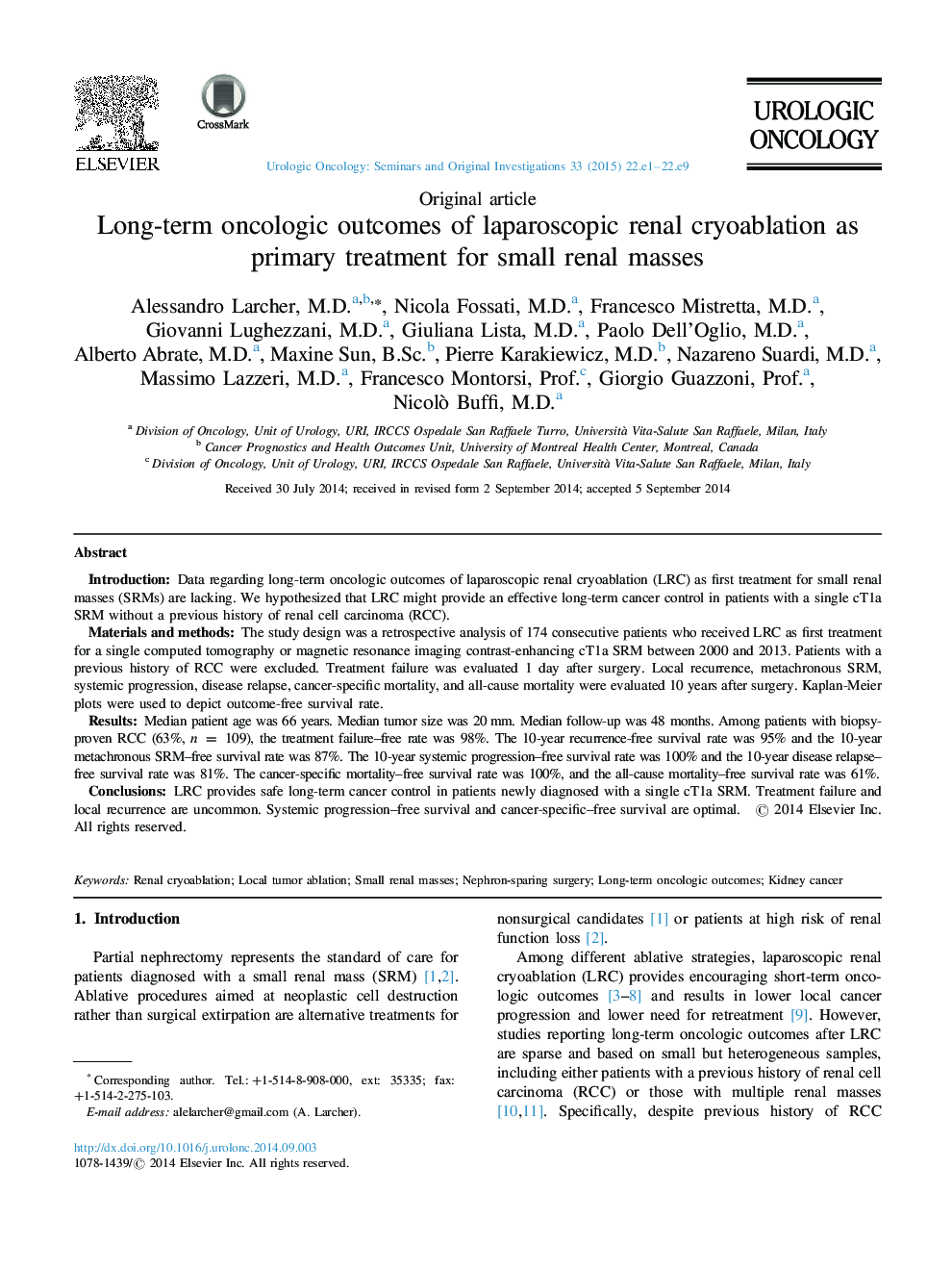| Article ID | Journal | Published Year | Pages | File Type |
|---|---|---|---|---|
| 6194233 | Urologic Oncology: Seminars and Original Investigations | 2015 | 9 Pages |
IntroductionData regarding long-term oncologic outcomes of laparoscopic renal cryoablation (LRC) as first treatment for small renal masses (SRMs) are lacking. We hypothesized that LRC might provide an effective long-term cancer control in patients with a single cT1a SRM without a previous history of renal cell carcinoma (RCC).Materials and methodsThe study design was a retrospective analysis of 174 consecutive patients who received LRC as first treatment for a single computed tomography or magnetic resonance imaging contrast-enhancing cT1a SRM between 2000 and 2013. Patients with a previous history of RCC were excluded. Treatment failure was evaluated 1 day after surgery. Local recurrence, metachronous SRM, systemic progression, disease relapse, cancer-specific mortality, and all-cause mortality were evaluated 10 years after surgery. Kaplan-Meier plots were used to depict outcome-free survival rate.ResultsMedian patient age was 66 years. Median tumor size was 20Â mm. Median follow-up was 48 months. Among patients with biopsy-proven RCC (63%, n = 109), the treatment failure-free rate was 98%. The 10-year recurrence-free survival rate was 95% and the 10-year metachronous SRM-free survival rate was 87%. The 10-year systemic progression-free survival rate was 100% and the 10-year disease relapse-free survival rate was 81%. The cancer-specific mortality-free survival rate was 100%, and the all-cause mortality-free survival rate was 61%.ConclusionsLRC provides safe long-term cancer control in patients newly diagnosed with a single cT1a SRM. Treatment failure and local recurrence are uncommon. Systemic progression-free survival and cancer-specific-free survival are optimal.
